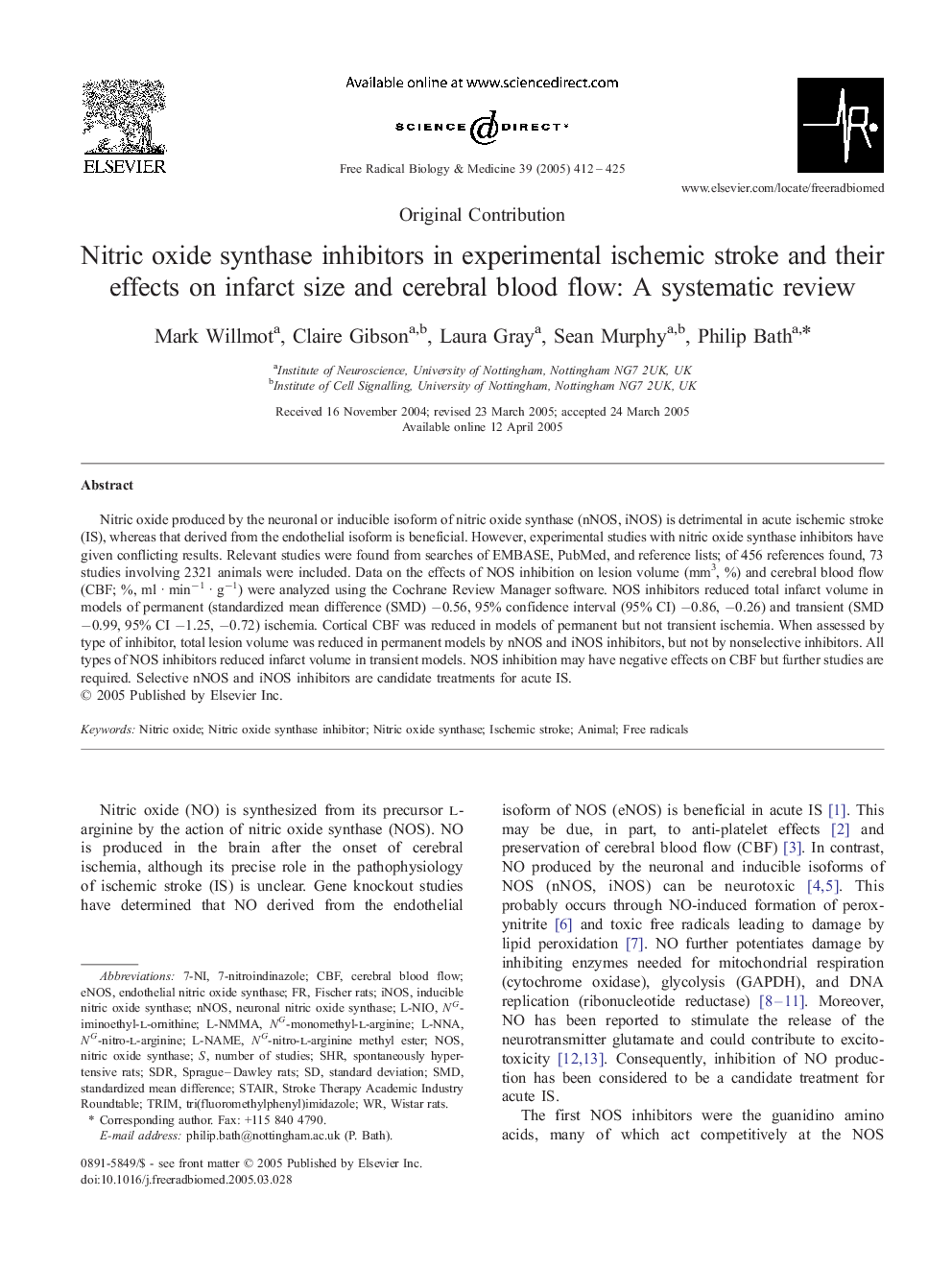| Article ID | Journal | Published Year | Pages | File Type |
|---|---|---|---|---|
| 10738829 | Free Radical Biology and Medicine | 2005 | 14 Pages |
Abstract
Nitric oxide produced by the neuronal or inducible isoform of nitric oxide synthase (nNOS, iNOS) is detrimental in acute ischemic stroke (IS), whereas that derived from the endothelial isoform is beneficial. However, experimental studies with nitric oxide synthase inhibitors have given conflicting results. Relevant studies were found from searches of EMBASE, PubMed, and reference lists; of 456 references found, 73 studies involving 2321 animals were included. Data on the effects of NOS inhibition on lesion volume (mm3, %) and cerebral blood flow (CBF; %, ml · minâ1 · gâ1) were analyzed using the Cochrane Review Manager software. NOS inhibitors reduced total infarct volume in models of permanent (standardized mean difference (SMD) â0.56, 95% confidence interval (95% CI) â0.86, â0.26) and transient (SMD â0.99, 95% CI â1.25, â0.72) ischemia. Cortical CBF was reduced in models of permanent but not transient ischemia. When assessed by type of inhibitor, total lesion volume was reduced in permanent models by nNOS and iNOS inhibitors, but not by nonselective inhibitors. All types of NOS inhibitors reduced infarct volume in transient models. NOS inhibition may have negative effects on CBF but further studies are required. Selective nNOS and iNOS inhibitors are candidate treatments for acute IS.
Keywords
NG-nitro-l-arginine methyl ester7-NInNOSSMDCBFeNOSTRIMNG-monomethyl-L-arginineiNOSNOSNG-nitro-l-arginineL-NMMAL-NNASDRNumber of studiesL-NIOl-NAMEstandard deviationstandardized mean differencecerebral blood flowAnimalFree radicalsinducible nitric oxide synthaseendothelial nitric oxide synthaseneuronal nitric oxide synthaseIschemic strokeStroke Therapy Academic Industry RoundtableShrNitric oxide synthase inhibitorSprague–Dawley ratsSpontaneously hypertensive ratsWistar ratsFischer ratsNitric oxidenitric oxide synthaseStair
Related Topics
Life Sciences
Biochemistry, Genetics and Molecular Biology
Ageing
Authors
Mark Willmot, Claire Gibson, Laura Gray, Sean Murphy, Philip Bath,
